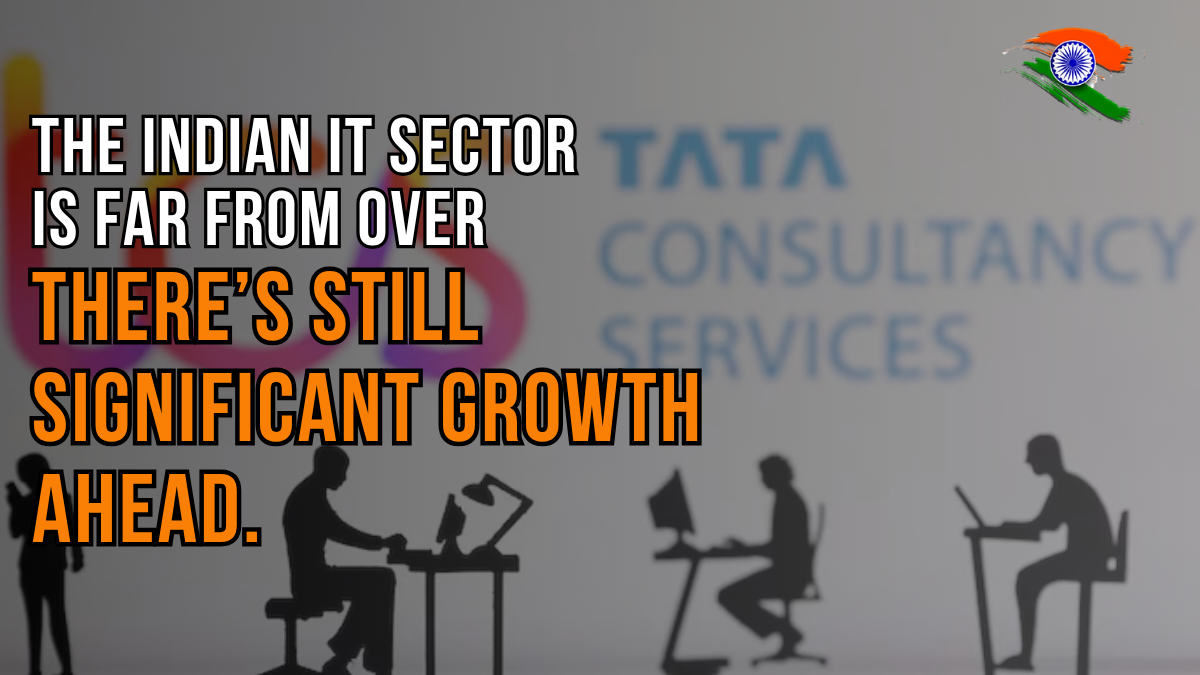India’s tech industry, valued at $250 billion, is experiencing a critical transition. While Artificial Intelligence is being hailed as the next technological leap, legacy IT firms like Tata Consultancy Services (TCS) are facing unprecedented pressure. With news of mass layoffs, halted salary hikes, and declining revenues, the conversation around India’s IT resilience is intensifying.

But beyond the headlines lies a quiet revolution: the rise of Global Capability Centres (GCCs), product-first firms like Zoho, and the need for Indian IT companies to shift from manpower billing to real intellectual property creation.
Summary Table: India’s IT Sector at a Crossroads

Key Highlights |
Details |
|---|---|
Layoffs at TCS |
Up to 12,000 jobs cut; salary hikes frozen |
Industry Trends |
Declining revenues, AI disruption, and shrinking global outsourcing |
Rise of GCCs |
Global Capability Centres growing 40% YoY |
Competitor Moves |
Infosys hiring 20,000 freshers; Zoho expanding product-led strategy |
AI Impact |
Automation replacing mid-level tech roles |
Alternative Talent Markets |
Vietnam, Philippines, Mexico offer cheaper IT talent |
Future Outlook |
Shift needed from services to product innovation |
Official Website |
TCS Layoffs and Salary Freeze: Breaking Legacy Norms
TCS recently announced that it may lay off up to 12,000 employees, roughly 2% of its global workforce. Alongside, lateral hiring has been frozen and salary hikes suspended—an unexpected move for a company long admired for its job security and “lifetime employment” philosophy.
What’s more alarming is that TCS’s stock has delivered little to no returns over the past four years, raising concerns about stagnation in an era of rapid technological evolution.
The Bigger Picture: AI and Global Budget Squeeze
TCS is not alone. Major Indian IT firms such as Infosys and HCL are also showing signs of slowdown:
- Infosys onboarded just 210 employees last quarter, a dramatic shift from its earlier recruitment spree.
- HCL announced only a 1-4% raise for junior employees, with no salary revision for mid-level roles.
Globally, tech majors like Microsoft, AWS, and Intel are also trimming workforce numbers. The common reason? AI-powered automation.
AI tools now write boilerplate code, automate internal workflows, and perform tasks previously assigned to mid-level engineers. These productivity gains, while exciting, are displacing thousands of IT roles worldwide.
Global Capability Centres: The Quiet Revolution
One of the most disruptive trends for Indian IT vendors is the rise of Global Capability Centres (GCCs). These are in-house tech hubs created by Fortune 500 companies within India. They:
- Hire local Indian talent directly
- Maintain complete ownership over proprietary tools and IP
- Offer tighter integration and faster delivery cycles
In FY 2024, the GCC ecosystem in India grew by over 40%, outpacing the <5% growth of traditional IT outsourcing.
This shift reflects a deeper corporate strategy—vertical integration. Rather than outsourcing tech work, companies now build capabilities in-house for better cost control and agility.
Changing Global Cost Dynamics
India’s cost competitiveness is also under scrutiny. With wages on the rise, global firms are exploring cheaper alternatives in countries like:
- Vietnam
- Philippines
- Mexico
These markets offer competitive tech talent at lower costs, creating additional pressure on Indian IT firms operating in a highly commoditized service space.
A Broken Model? The People-Billing Trap
Many industry observers now criticize Indian IT vendors for functioning as glorified HR firms. These companies charge clients by the hour based on manpower deployment—a model that crumbles when AI takes over routine work.
Without proprietary products or differentiated services, these vendors are becoming vulnerable to disintermediation. When global clients set up their own GCCs or turn to low-cost automation, the demand for third-party outsourcing shrinks.
Hope on the Horizon: Infosys and Zoho
Despite industry-wide headwinds, not all is lost.
Infosys
- Plans to hire 20,000 freshers this year
- Reported decent revenue growth in the latest quarter
- Continues to sign large deals, showing that traditional outsourcing still holds some value
Zoho
- Built an end-to-end product ecosystem without external funding
- Manages development, marketing, and cloud hosting in-house
- Owns its IP, giving it long-term pricing power and strategic independence
Zoho’s product-led approach is a viable model for future growth—one that offers resilience against automation threats.
The Inevitable Shift: From Services to Products
For India’s IT sector to remain globally competitive, a transition is inevitable. The age of low-margin services is giving way to a demand for high-value product innovation.
Challenges include:
- Cultural shift within massive companies
- Patience to develop mature, market-ready software
- Upgrading talent pools with product-first mindset
However, if Indian IT companies wish to stay relevant in a rapidly evolving digital economy, they must invest in building tools, platforms, and SaaS solutions—not just deployable bodies.
FAQs About Indian IT Sector 2025
1. Why is TCS laying off employees in 2025?
Ans. TCS is reportedly laying off up to 12,000 employees due to revenue stagnation, AI-driven automation, and changing global outsourcing dynamics.
2. What are Global Capability Centres (GCCs)?
Ans. GCCs are in-house tech hubs set up by multinational corporations in India to reduce dependency on outsourcing vendors and gain more control over software development.
3. Is AI the main reason for IT layoffs in India?
Ans. AI is a significant contributor, especially in automating mid-level engineering roles. However, rising competition and shifting global cost structures also play a role.
4. Which Indian IT companies are doing well in 2025?
Ans. Zoho and Infosys have shown resilience. Infosys plans to hire 20,000 freshers, and Zoho continues to grow profitably with its product suite.
5. Will India lose its IT dominance globally?
Ans. Not necessarily. But Indian IT firms must pivot toward product development and IP creation to sustain their global influence.
Conclusion
India’s IT sector is at a turning point. With AI and automation reducing the need for traditional outsourcing, and multinational firms building in-house tech hubs, the old services model is under pressure.
However, the industry isn’t out of the game. Companies like Infosys still show growth, and product-led firms like Zoho offer a clear path forward. To stay relevant, Indian IT must shift from manpower-based services to building innovative, IP-driven products. The future belongs to those who adapt—fast and smart.
Official Website
For more details on TCS updates, visit:
Tata Consultancy Services – Official Website
For More Information Click HERE











